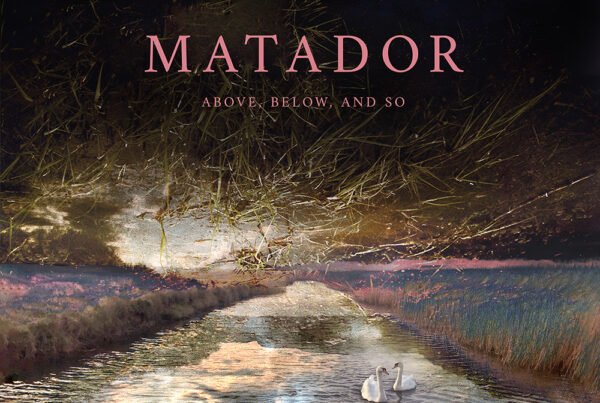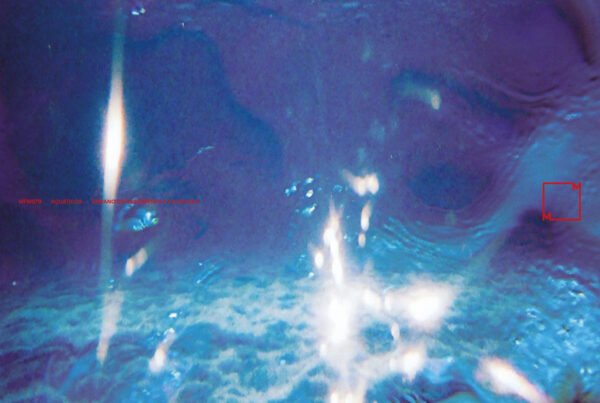Lupe Fiasco wrote one of the illest fanfics 2024 will see in the form of Samurai, a modular, committed, beautiful album with a perplexing concept.
Release date: June 28, 2024 | 1st & 15th/Thirty Tigers | Facebook | Instagram | Twitter | Stream/Purchase
‘I keep coming out with all battle raps and they’re just pouring out of me. Like Wu-Tang stuff… but really neat, very beautifully alliterated little battle raps. So next time you wanna come for me and have a battle rap-off, I’m gonna kill you ’cause I’m a samurai. Before you ask yourself, ‘is she drunk, is she high, has she been out, what has she been doing?‘ Yeah, I’m fucked up, I’m fucked up in the head, but I keep coming out with all this stuff all the time, all these lyrics and… I don’t know why. But I realize it’s for the next album…‘
This is what Amy Winehouse said to her producer Salaam Remi one night in a voice message. I didn’t follow her much at all, not being a particular fan of the style of music she did at that time, but I know enough about her to have questions of my own after hearing that, like what the hell did she mean? What were the bars like? Was she actually going to start rapping on her music, or was this more of a metaphorical reference or connection regarding the style of lyrics? We’ll never know – Winehouse infamously passed away on July 23, 2011 from alcohol poisoning after a very rough ride of a life. Something about this unfinished story clearly spurred something in Lupe Fiasco, a Chicago rapper who is frequently named among hip-hop heads to be one of the best lyricists not just alive, but dead or alive – ever. I’ve covered him before, talking extensively about his album DROGAS Wave.
It’s always very daunting talking about Lupe’s work because of how dense and heady it is. You can take it at face value, that’s fine enough, especially when you factor in the beat work his pal Soundtrakk provides him, but to stop there is to miss out on some of the most engaging and rewarding stuff the genre has to offer, and ever since his quality bounce-back with Tetsuo & Youth in 2015, he’s made it a point to make sure fans pay attention so as not to miss anything he drops. It’s just that good. Even his pre-album mixtape-esque release DROGAS Light has grown on me over time. But this new LP, Samurai? It’s uniquely complicated and beset with baggage.
The concept is honestly ridiculous: set Amy Winehouse up as a battle rapper, just as she imagined herself on that night talking to Remi, beginning a hero’s journey of sorts as she contends with a new gift (or curse?) of rhyme bestowed upon her. Of course, Lupe’s also rapping as himself which provides a number of meta and self-referential moments where the lines blur in a way that pokes holes in our fourth wall. It’s weird, it’s wild, it’s told out of order, it shouldn’t work… and yet…
The title track is a boom-bap delicacy, showcasing Soundtrakk and Kush Baby‘s jazzy production that’s so Chicago, it hurts. Lupe borrows from Amy’s own words for a catchily-sung hook, each verse vividly transporting us to a night in London, snapshotting the streets teeming with buskers and singers around an opera house, not in (‘Tuxedos and throats where the bowties posts/Folks look past the lower-class blower of the notes/And tell unspoke jokes as they approach/Which she’d never be inside, but she hopes‘). This timeline’s Amy, referred to as Samurai throughout the album, is down on her luck, but heart full of hope, mind full of untapped talent, she pushes on.
Already, it’s setting up similar to Disney movie whimsy – an otherwise unassuming, down-on-their-luck person is about to have their whole life changed by something extraordinary and they must find a way to live with it. “Mumble Rap” is the turning point, where Amy meets an old man in the park who quite literally gives her the gift of rhyme and disappears just as fast as it happens. ‘Everything you do will now be in another art,‘ he says over a rhythmically harrowing yet still catchy beat, making rhymes come second nature to her – she is now Samurai. I love the third verse, how Lupe flows on it telling this story, and how it waxes poetic about the art and feeling of rapping:
‘Now everything’s a verse, and everything’s a line
A lyrical non-stop onslaught of rhymes
The hardcore roughneck bomb-drop divine
Sound that is found when the tom tops combine
With the bass and the snare and the kick
They fill you with a feeling that just make you wanna spit
Rap a couple bars, move your arms like, this
Your hand is a gun and your arm is a clip, let it r-r-rip
Don’t get hit by the split-second Smith & Wesson lips‘
This is one of those meta moments because Lupe himself, you can tell he often feels this way when he gets in his bag while rapping. If “Mumble Rap” is the scene of a superhero movie where the hero discovers they have powers for the first time, “Cake” is the scene a day after they first use their powers in a way that affects others. Here, it’s a celebration, the moments of reflection after Samurai wins her first rap battle and realizes the depth and power of her new abilities. In other words, she’s nice on the mic. This was a single for the album which was smart because it has some of the most overlap and easter eggy references to Lupe’s own life and career, especially on the end of the last verse where he straight up just chisels at the fourth wall by referring to himself and the fact that many of us have to be on the internet for months after he drops an album to even attempt to keep up:
‘Well did he do it or didn’t she? Who are you mentioning?
Lu will duel a dual identity, dueling enemies
Do it to ’em, chewin’ through ’em without doing it dentally
Superhuman, flew ’em without refueling engines with energy
This chemistry, can it be, they googling endlessly
Even computers losing memory, bending mentally
When they interface with the lyrical ability‘
The “Cake” beat is nice, but not a favorite of mine. “Palaces” on the other hand is one of the smoothest tracks Lupe has ever put out. It’s airy and vacant, thoughtful and sharp as a katana. This is all about fortifying yourself against the battles to come, an obvious double entendre especially with some of the language used. This is just as much the soundtrack for the beginning of 8 Mile when B-Rabbit is working up the nerve to to on stage and battle another motherfucker (he fails), or the soundtrack to a samurai’s preparation to defend his lord’s castle against a siege in Edo Japan.
“No. 1 Headband”, another single, is a subtle summer banger. Going full send on the jazzy accouterments, this is Samurai’s top-of-the-world moment, pursuing and wearing the number one – ichiban – headband, a reference to Afro Samurai. It’s packed with ludicrous flows, diverse rhyme schemes, and awesome wordplay. The third verse impresses the most (‘From soldier to toll roads, I told bro, ‘I’m number one‘/Put the ‘go’ in the Gohan, turn go into Voltron/I’m the number-one headband wearer/Walk it like I talk it, never false it like Farrah‘), but the whole track is just made for relaxing drives around the city for us hip-hop heads. Beautiful song in every way.
If I have any critique of Samurai as an album, it’s the last three tracks that start to lose a little steam for me. The beats aren’t quite as robust or captivating (I don’t like the snares used on the last two tracks), but still retain a chillness to them, and the hooks are less catchy though I will give Lupe credit for sticking to singing them as a nod to Amy and her soulful voice. It’s also a bit more confusing to follow or parse out story-wise. It’s definitely front-loaded for me personally, but there’s still a wealth of words to digest. “Bigfoot” shows another side of Amy trying to grasp at fame as an artist and singer that could fall before or after she gets, uses, and retires her battle rap powers – a prologue or epilogue of sorts. “Outside” sounds like it should take place between “Mumble Rap” and “Cake” as it’s set in a post-performance/-battle club and captures the anxiety and sensory overload of just putting on a show and trying to leave the venue after while tons of people try to pull you aside for their own selfish designs. “Til Eternity” is pure bar-heavy Lupe mostly rapping about himself, but still sticks a couple references to Amy Winehouse like her famous beehive haircut.
André 3000, another one of the best to ever do it, infamously put out an instrumental flute-based album last year and he spoke with GQ on his absence from rap saying, ‘sometimes it feels inauthentic for me to rap because I don’t have anything to talk about in that way. I’m 48 years old. And not to say that age is a thing that dictates what you rap about, but in a way it does.‘ Respect to that reservation and thoughtfulness, but Lupe Fiasco, who is 42 now, is the epitome of letting your imagination dictate your art. With Samurai, he really dug deep conceptually, ploughing oddball land that many would never even look at twice. He’s very adamant that he desires not to speak for or even on Amy Winehouse as she existed as a person or performer, but rather launch off the quote that started out this whole review to expertly paint a picture of an artist’s journey. It’s imaginative and fantastical, and while so much good rap is based in realities that most of us will never experience, Lupe’s reminded us there’s whole other facets to the pen game: crafting your own stories, taking respectful liberties, and still showcasing immense lyrical ability within those confines, or lack thereof. Real GOAT shit, even if I liked Drill Music in Zion better.
Highly recommend taking a look at The Company Man‘s Justin Hunte break down this album with more insight than I had. As usually with Lupe projects, there’s a ton more nuance and context than any one person can hope to have or catch even on several listens.
Artist photo by Jessica Hatter






